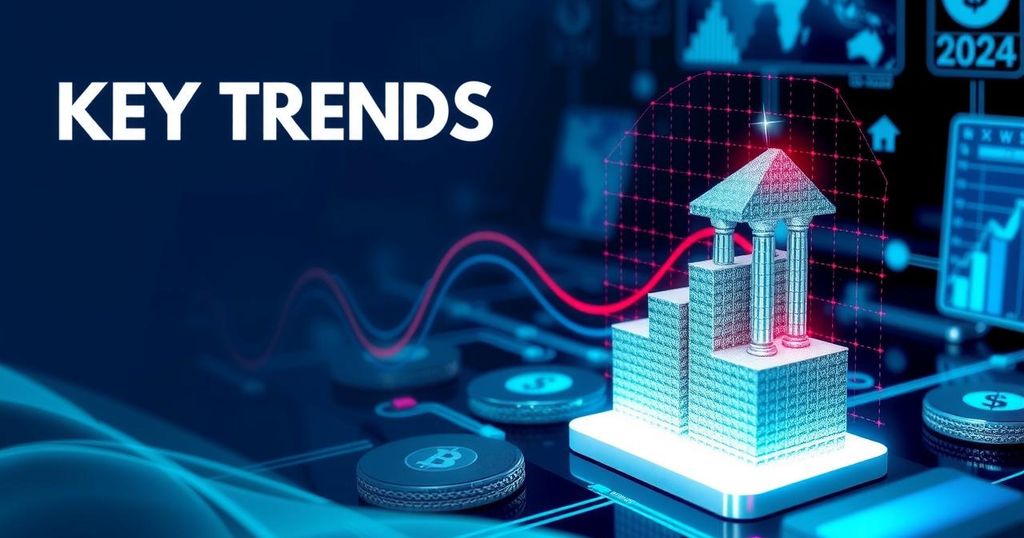Transformative Financial Trends Shaping the Banking Landscape in 2025
By 2025, banking will see transformative changes driven by AI, ethical finance, regulatory oversight, and new consumer demands. Fintech challengers and evolving technologies, like quantum computing and CBDCs, will redefine the financial services landscape, necessitating a focus on sustainability, cybersecurity, and workforce adaptability to thrive in a rapidly changing environment.
As we approach 2025, the banking and financial technology landscape is revolutionizing under transformative trends driven by technology, consumer expectations, and regulatory shifts. With established institutions clashing against innovative fintech challengers, AI is likely to permeate operations, automating mundane tasks and enhancing customer interactions. The advent of autonomous chatbots promises 24/7 customer support, while generative AI will redefine financial planning services, tailoring advice to individual consumer needs.
Increasing awareness of sustainability is shaping demand for ethical financial products, driving banks to be transparent about their environmental impact. Central Bank Digital Currencies (CBDCs) are set to enter the mainstream, backed by governmental stability and blockchain efficiency. Simultaneously, the burgeoning realm of quantum finance teases unimaginable computational speeds that could redefine risk assessment and security measures.
Amidst this change, traditional banking is at risk as next-generation banking services and super-apps gain traction, attracting users with all-in-one solutions. However, alongside innovation comes an urgent need for regulation, requiring financial institutions to adapt to new legislative frameworks governing AI. As financial services evolve, organizations must address a skills gap by reshaping workforce requirements, fostering diversity, and promoting continuous learning.
Moreover, the threat of cyberattacks amidst geopolitical tensions necessitates a proactive approach to security, compelling institutions to establish robust contingency plans. The mantra of trust, security, and service will echo louder as banks rush to integrate technological efficiency while ensuring resilience, ultimately crafting a more intelligent and human-centric future of banking.
In 2025, the essence of banking is not just digital security but a vibrant ecosystem that harmonizes responsibility, foresight, and personalization, ensuring a more prosperous financial journey for all.
As we edge closer to 2025, the financial services sector faces immense disruptions fueled by technological advancements, shifting consumer behaviors, and stringent regulations. Established banks grapple with agile fintech competitors while striving to enhance operational efficiency through artificial intelligence. The importance of ethical practices and sustainability in finance has surged, reflecting a growing consumer demand for responsible investment options. Amid these dynamics, entities must navigate a complex web of emerging technologies and regulatory landscapes to ensure their enduring success.
In summary, 2025 will witness the banking sector undergoing profound transformations shaped by advanced AI, sustainable finance, and regulatory frameworks, each playing a pivotal role in evolving consumer trust and satisfaction. Institutions must innovate while adhering to ethical standards, safeguarding their operational foundations against emerging cyber threats. Those that can seamlessly integrate technology with a human touch will redefine what it means to engage in banking, promising a future filled with opportunity and resilience.
Original Source: www.forbes.com




Post Comment